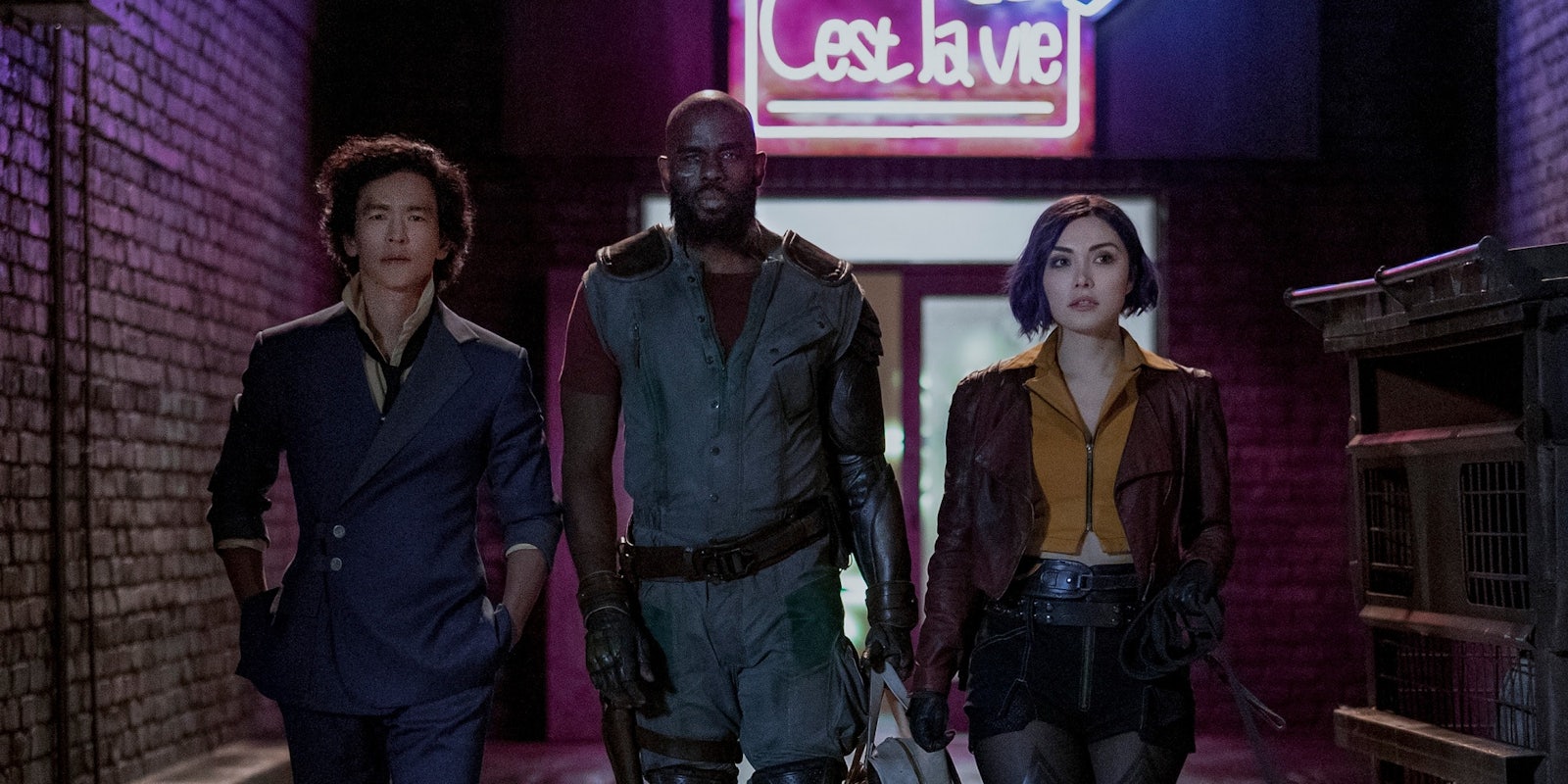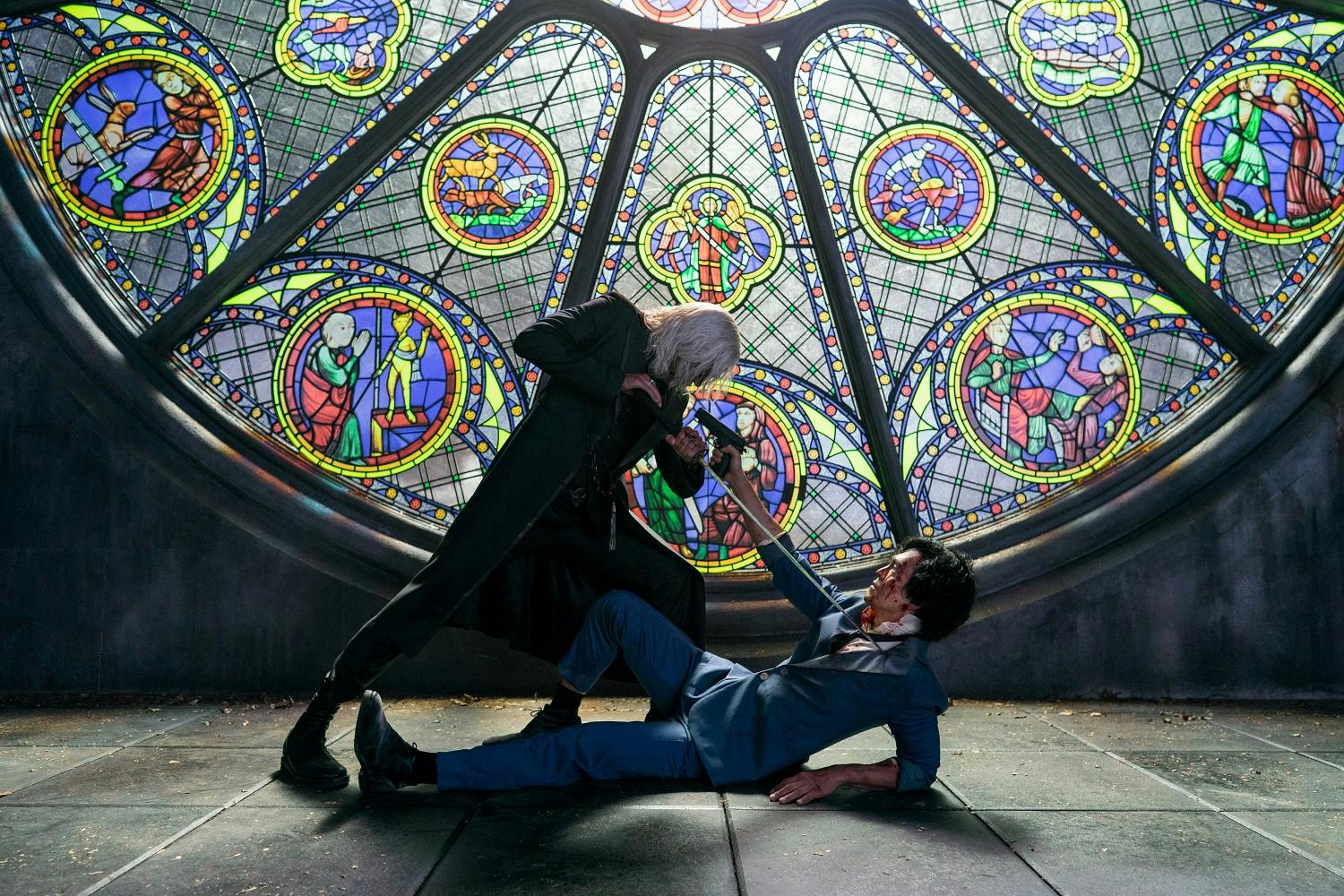Netflix’s Cowboy Bebop presents an intimidating creative challenge. Live-action anime adaptations have a poor track record in the U.S., and the original Cowboy Bebop has a passionate—and therefore judgemental—fanbase. For instance, when Netflix recently shared a side-by-side comparison between the original and the remake, fans tore it apart on Twitter, deriding the new show’s muted palette. This is, perhaps, unnecessarily harsh. Netflix’s adaptations of The Witcher and Umbrella Academy didn’t face such intense scrutiny, and nor do most comic book movies. But anime fans are picky, and Cowboy Bebop’s remake faces an uphill battle to defend its own existence.
CREATOR: André Nemec
STREAMING: Netflix
John Cho stars in this live-action remake of the beloved anime series Cowboy Bebop, a sci-fi/noir drama about a trio of spacefaring bounty hunters. The production values are high, but it lacks the panache of the original.
Rather than attempting a direct remake, showrunner André Nemec retools Cowboy Bebop‘s sci-fi/noir concept for a conventional American format. Episodes run to about 45 minutes (twice the length of the anime), combining crime-of-the-week storytelling with a more serialized plot. The production design is expensive and detailed, paying homage to the original. (Spike’s outfit? Perfect!) Likewise, Netflix’s live-action directors try to echo the anime’s stylized visual storytelling, most obviously through the purposefully theatrical fight scenes. This show is often better when nobody’s talking, because the scripts are rather workmanlike.
John Cho stars as Spike Spiegel, a bounty hunter who travels on the spaceship Bebop with his partner Jet Black (Mustafa Shakir) and their erstwhile frenemy Faye Valentine (Daniella Pineda). Cho is one of the main draws here, an extraordinarily charming actor who fulfills Spike Spiegel’s trickiest characteristic: Looking cool, but with mournful undertones. Jet Black is more of a stock character; a gruff ex-cop who acts as the straight man for Spike and Faye’s irresponsible antics. In the anime, Faye’s absurdly sexy appearance belied a cynical personality. Netflix toned down her costumes for obvious reasons but retained her self-centered gremlin characterization, which Pineda carries off with aplomb.
Alongside our three leads, we have a revolving cast of assorted gangsters, bounty hunters, assassins, nightclub owners, and so on. The format is simple: Each episode, Spike’s crew try (and often fail) to apprehend a criminal. They’re perpetually broke and constantly getting on each others’ nerves, traveling between planetary outposts that resemble Earth locations like Tijuana. It’s somewhat similar to The Mandalorian or Firefly, raising existential questions about Cowboy Bebop‘s role as a Japanese-to-American adaptation.
Cowboy Bebop‘s creator, Shinichirō Watanabe, borrowed heavily from American pop culture—primarily noir cinema and Westerns, accompanied by a brilliant jazz/pop score by composer Yoko Kanno. (Happily, she returns for the remake.) These influences were filtered through a Japanese lens, and the same material feels less original coming from an American creative team 20 years later. This version of Cowboy Bebop is basically just another sci-fi show, with its music as the only distinctive element. I can’t help but wonder how a more adventurous adaptation might have worked: Perhaps with a more downbeat atmosphere, leaning into an indie-movie tone reflecting the anime’s quieter moments. But that’s not the kind of show that gets a greenlight from Netflix.
In fairness, Netflix’s Cowboy Bebop does keep a lot of the everyday stuff: Lingering shots of takeout food, Faye and Spike bickering for minutes on end, silly subplots like Jet trying to buy a doll for his daughter. Unfortunately, the longform story arc is a letdown. I can’t spoil any details here, but anime fans will recall that Spike’s nemesis Vicious (Alex Hassell) is a crime boss who stole Spike’s girl (Elena Satine). Spike and Vicious’s rivalry is classic noir material, but without the emotional sophistication of true noir. Prioritizing violence over characterization, Vicious comes across generically evil—and fundamentally less entertaining than the simpler episodic villains.
The casting choices also add a weird undertone to this trio of characters: John Cho is 49 and Alex Hassell is 41, while Elena Satine is 33. By comparison, Spike was only 27 in the anime. Casting an older actor gives Spike a more noir-like weariness, but it also changes him in ways that don’t fully line up. He’s now approximately the same age as Jet Black (Mustafa Shakir is 45), meaning that Jet can no longer play the paternal/experienced role. John Cho’s Spike is old enough to have an extensive Dark Past, so his immaturity and adolescent body language now read like a kind of midlife crisis. Yet the show wants him to seem youthful, pairing him up with significantly younger women, and giving John Cho an unbelievably ripped physique. These disparate traits don’t hold together, no matter how hard Cho tries.
Netflix is full of shows that pretend to be appointment TV but are really more like background viewing. Entertaining in a low-impact kind of way, and ultimately unmemorable. Cowboy Bebop, with its appealing concept and shallow storytelling, arguably falls into that category. I’m sure some anime fans will loathe it on principal, probably to an unfair degree. But perhaps new viewers will find it easier to enjoy.


